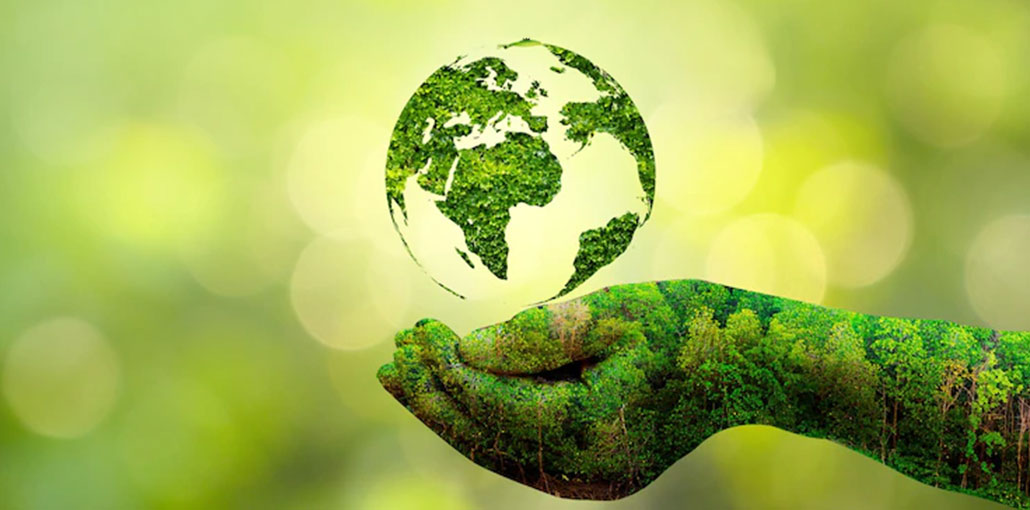The earth’s resources like forests and fossil fuels are burning at an alarming rate, exacerbating climate change. Abnormal temperatures, dangerous storms, raging wildfires, droughts, earthquakes, and increases in viruses and life-threatening diseases negatively impact everyday life. It won’t be long before air pollution, food shortages, mass displacement, weakened immune systems, and death leads to the planet’s demise.
Individual Contributions Provide A Great Start
The good news is that as more people become aware of these dangers, they begin taking steps to reduce their carbon footprint. Recycling, reusing, gardening, water, energy conservation walking, and purchasing electric vehicles are environmentally friendly practices that are making a big difference.
However, more must be done to evoke significant change. Everyone must start demanding that major corporations like banks improve their business practices and investments.
Also read: Top 3 Free Banking Apps for Startup Business & Entrepreneurs
Big Banks And Fossil Fuel Companies
Did you know fossil fuel companies account for more than half of the world’s greenhouse gas emissions? These are gases that trap heat in the atmosphere and include carbon dioxide, methane, nitrous oxide, and fluoride gases. Fossil fuel companies are responsible for producing coal, oil, and gas. Of course, no company is successful without financial support. Fossil fuel companies receive billions of dollars from major banks.
Chase Bank Takes The Cake
While many global banks fund fossil fuel efforts, JPMorgan Chase Bank is at the top of the list. Over the past few years, Chase has spent a quarter trillion dollars, and their overall financing of fossil fuels is more than thirty percent higher than second-rate banks. As you can imagine, the bank turns a sizeable profit, while the environment and human life suffer the consequences.
The Environmental Impact
Although resources like coal, oil, and gas have become an intricate part of modern-day life, the cost is substantial to all living things. Fossil fuel companies are polluting the air and heating up the planet. As the earth’s temperature rises, it leads to more significant issues from changing weather patterns and forest fires to habitat destruction and deadly viruses. Consequently, animals and humans fight for survival in a way that leaves the less fortunate vulnerable.
The Solution
Banks are beneficial for storing, saving, and managing your finances. They even offer opportunities to borrow money, buy a home, go to school, and build your credit. However, at what cost? Major financial institutions must do something before it’s too late.
What can banks do to resolve the issue? They must stop funding the fossil fuel industry. They must stop financing fossil fuel expansion projects, require companies to phase out fossil fuel activities, and report these changes to the public. Although this process can take time and will have a financial impact on banks, it’s a necessary step to preserve the environment, protect human rights, and save humanity.
Also read: Leverage the Role of Smart Contract in the Banking Sector
What Can You Do?
Hearing how banks impact the environment is alarming. Although you may feel helpless, consumers have more power than they think. As with any other business, banks need their customers to remain successful. If you demand that these financial institutions develop a plan to stop funding fossil fuel companies, they’ll have no choice but to oblige. Below are a few suggestions on how to use that power to evoke change.
Start by reaching out to bank executives and sharing your concerns. You can join advocacy groups, sign petitions, and spread awareness within your community. Next, consumers should stop supporting banks that use their money to invest in fossil fuel projects. Switch to a bank that goes above and beyond to reduce its carbon footprint. Above all else, the bank should invest in environmentally-friendly and sustainable businesses. They should also offer eco-friendly solutions for customers like online bill pay, mobile banking, virtual debit cards, or a green credit card.
The impact of climate change is apparent and intensifies with each passing year. If we don’t act now, the damage could be irreversible, and everyday life will forever be changed. However, there is hope. If humans and major corporations continue to practice environmentally friendly concepts, we can make a difference. Unfortunately, it’s not something the world’s largest banks are willing to do out of the goodness of their hearts. Therefore, consumers must use their power to demand change. Voice your concerns, spread awareness and switch to better banks, and eventually, the leaders of these establishments will listen.










Leave a comment